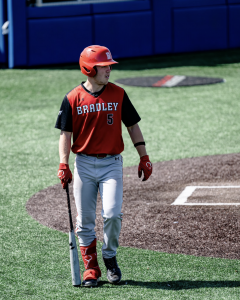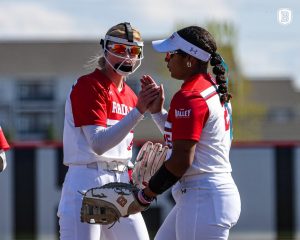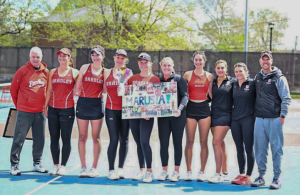
The deadline for this column was 11 a.m. on Wednesday, so if Tiger Woods has already been knocked out of the Accenture Match Play Championship, please stop reading because I’m about to make myself look like a fool.
However, I have watched Tiger Woods play golf for too long, and looked like a fool too many times to know the odds that he was beaten by Brendan Jones, Tim Clark or Retief Goosen are not very good.
First off, let me back up just a little bit and explain why this week could end up being one of the most exciting weeks of the year for not only golf fans, but for the entire sports world.
Tiger Woods is back.
After winning what may have been one of the most incredible U.S. Opens of all time – on basically one leg, no less – Tiger is back in action this week at the Accenture Match Play Championship. The tournament pits 64 of the best golfers in the world against each other in a last-man-standing match play extravaganza.
While the tournament features premier players like Phil Mickelson, Vijay Singh and Sergio Garcia, there is no doubt there is one man on the mind of every golf fan in the world.
With this particular tournament being match play format – a one-on-one competition in which a player is awarded a point for each hole they win – the stage could not be set any more perfectly for Tiger to again make history and again prove to us why he is every legendary cliche rolled into one.
However, with match play being the fickle game that it is, along with the fact that Tiger will not be playing a familiar course, many people believe there is also a chance he could be knocked out of contention early.
Since match play is based on hole-by-hole scores, rather than the player’s overall round, it’s possible that Tiger could put up a good round, but still get knocked out.
So why would the most dominant golfer in the game choose this particularly risky week to make the most anticipated sports comeback of the year?
This is a question that I have been wondering since Tiger made the announcement last week that he would play in the event, and I think the simplest explanation is because he is such a fierce competitor.
Tiger has won the Accenture Match Play Championship three times in the past six years and wants to make a statement.
If you think about it, these are the type of against-all-odds moments that define not only a superstar, but an icon. Think about Michael Jordan playing with the stomach flu and putting up 38 points in game five against the Jazz.
These guys live for moments like these.
If we were talking about any other golfer in the world, there would be a doubt in the back of my mind that they may not deliver and that just a shred of rust or nerves could keep them from pulling off an unbelievable comeback.
But we aren’t talking about them. We are talking about the greatest and most mentally sound player to ever play the game. Tiger Woods doesn’t have nerves, and he thrives on competition.
Example: In August 2007, the press had a field day after Rory Sabatini commented that Tiger looked “as beat able as ever” after Woods beat him by only one shot at the Wachovia Championship. When the two players were paired up at the Bridgestone Invitational shortly following the comments, everyone wondered whether or not Woods, who had been struggling, would be able to keep the comments out of his head and play golf.
Tiger fired a 65, while Sabatini, who carried a one-shot lead to start the day, shot 74 and lost the tournament by eight shots.
While people may argue that Tiger’s knee is going to keep him from competing at his usual level, there is no way to convince me that a competitor like Woods entered his first tournament back with the thought that he would finish second.
D.J. Piehowski is a junior journalism major from Genoa. He is the Scout assistant sports editor.
Direct questions, comments and other responses to dpiehowski@mail.bradley.edu




